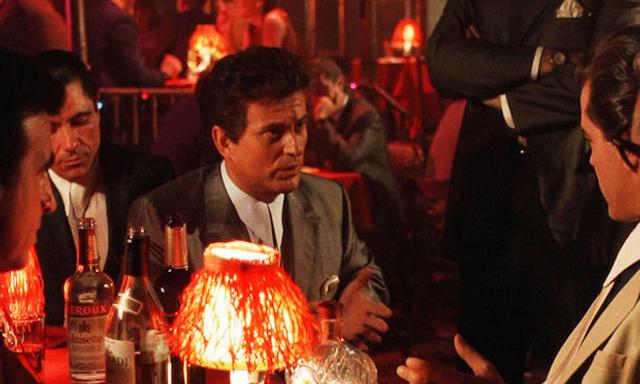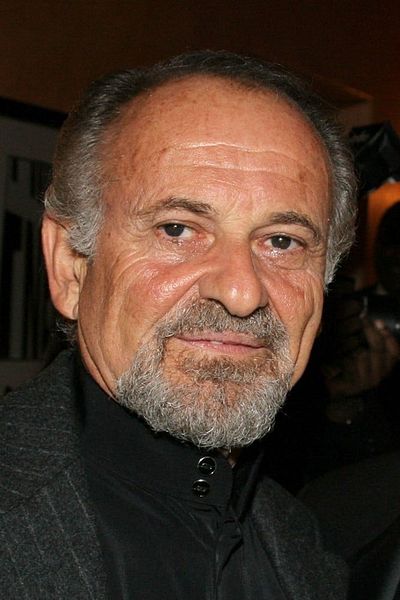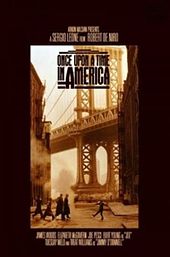Joe Pesci is one of those actors who is almost immediately identified with a specific genre - namely crime sagas.
Casino, Goodfellas, Once Upon A Time In America; Pesci's career has seen him star in some of the most iconic films of the last thirty years and deliver some of the most startlingly disturbed performances in the last fifty years. The most well-known of these, of course, is Tommy from Goodfellas. Henry Hill, the real-life character played by Ray Liotta, said that Pesci had his character "between 90 and 95 percent accurate."
Of course, the psychopathic characters Pesci played were all an act. Good-natured, charming and gregarious, Joe Pesci was known as an extremely humble man by his peers. His career began in childhood where he was a friend of Frankie Valli and played a key role in the formation of The Four Seasons. In the late '60s he formed a comedy duo act with Frank Vincent, perhaps best known as Phil Leotardo from The Sopranos. The duo toured extensively across New Jersey and caught the attention of Martin Scorsese.
His second film role, Pesci won himself a nomination for Best Supporting Actor in Raging Bull as the brother and manager of Jake LaMotta. Pesci's performance was much more muted and restrained than DeNiro's but just as emotionally devastating as his. Before Raging Bull, Pesci's career was struggling and was only convinced to take on the role by Frank Vincent. In the famous 'hit me' scene with Robert DeNiro, the two actors really did trade blows with one another. Pesci even broke a rib during a sparring scene at DeNiro's hands, the reaction of which was caught on camera and used in the film.
Pesci would star in a number of reasonably-performing, if underwhelming films after Raging Bull, including Lethal Weapon 2 where he starred as the fast-talking accountant Leo Getz. Pesci's role recalled his earlier comedic roots, regularly taking in prat-falls and his motor-mouth skills to great effect. Pesci's repeated comments of "OK, OK, OK" were taken from a Disneyland visit. "Mickey Rourke and I had gone to Disneyland. Frankie Valli & The Four Seasons were singing at Frontierland, so we stopped to ask for directions from these blond-headed, blue-eyed kids. I think they were Mormons probably. And the first word out of this kid's mouth was, 'Okay!' Then he hit me with about 12 more: 'No, no! Okay, okay, okay!' We thought it was really funny."
He would reunite again with Scorsese for Goodfellas, taking on arguably his most well-known role as Tommy DeVito. The 'funny how' scene was pulled from Pesci's own memories. Whilst working as a waiter in New York during his teens, Pesci saw a gangster become increasingly angry when one of his associates called him funny. Pesci relayed this story to Scorsese and Liotta, who did the scene in one take with the various actors unaware of where the scene was going. Their confused reactions and nervous laughs were all genuine. The film also has the dubious honour of having - at the time - the most amount of uses of the word 'fuck' in a film, half of which were attributed to Joe Pesci. This foul-mouthedness continued when he signed on for Home Alone. His cursing became so frequent that director Chris Columbus placed a swear-jar on set for whenever someone cursed. By the end of a single day of shooting, Pesci had filled it. He also deliberately avoided Macaulay Culkin on set so as to make him think he was mean. Pesci chose the role presumably to counter the belief that he was only able to play violent psychopaths or gangsters, opting for a much more family-friendly fare.
His next major film would be Oliver Stone's JFK, which Pesci found to be a difficult experience. He would later remark that he would never work for Stone again, claiming that he was too demanding a director. Pesci would return to working with Scorsese for Casino, a three-hour epic set in Las Vegas and concerning the mob's involvement with the city. Pesci would win no Oscar for his role, but by then, Pesci only turned up for roles where he was either a lead or reprising a role - the aforementioned Lethal Weapon 4 and two critically-reviled films, 8 Heads In A Duffel Bag and Gone Fishin'.
In his public appearances, Pesci seemed genuinely apathetic about being an actor and, indeed, fame itself. His Oscar speech for Goodfellas was the second shortest in the Academy's history, lasting six seconds in total. Despite an active career up until 1998, Pesci effectively retired at the age of 55. He reappeared for a brief cameo in the Robert DeNiro-directed The Good Shepherd and for a Snickers commercial where he played a parody of his previous roles. Pesci spoke in various interviews about he had spent much of his life playing other people, people who bore almost no resemblance to him and how it affected him. He remarked during a golf game - a sport he was an avid fan of - that he "didn't know who the hell was about to hit that golf ball," claiming that it could have been any of his various roles.
Pesci was due to star in another crime film in 2011 where he would have played an enforcer for John Gotti. in an adaptation of the true-crime book, Gotti: In The Shadow Of My Father. Pesci joined the production when director Nick Cassavetes was attached, however when he pulled out, Pesci's manager halted contract negotiations. Pesci would eventually sue the production company after they altered his deal. In a bizarre coincidence, John Gotti allegedly murdered Tommy DeSimone, the character on which Pesci's role was based in Goodfellas. A Gotti film would eventually be released, with John Travolta in the lead role.
After a nine-year absence from live action roles, Pesci will star as part of Martin Scorsese's long-awaited return to the crime genre, The Irishman. On-set photos see Pesci, DeNiro and Pacino in costume, happy and working. When we look at the career of say, Robert DeNiro, whose latest film is currently at 9% on Rotten Tomatoes and received a 0.5 rating from us, it's possible Pesci saw what was coming down the line at him. There are very few actors who have the longevity to stay in the business that long, much less to come out of with their dignity intact.




















































































